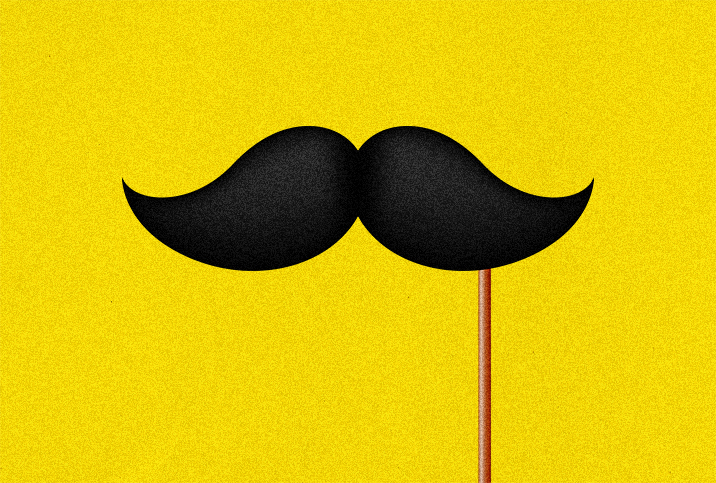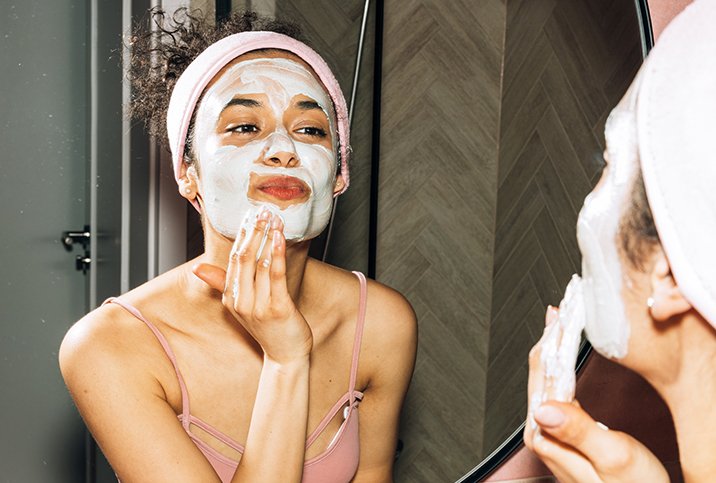You're No Less a Man if You Can't Grow a Beard

Like all style trends, the popularity of beards ebbs and flows. Generally, culture plays a big role in how we present ourselves, which means appearances change over time and borders, as map artist Martin Vargic illustrated in a chart published in 2015 by GQ magazine.
In 2021, amid pandemic lockdowns, many men took advantage of the decrease in socialization to grow a quarantine beard—for the first time for some of them. Suddenly, the need to be clean-shaven paled in seriousness compared to the looming threat of COVID-19, especially if men didn't have to face the frowns of their bosses while they got the beards going.
I'm of the unfortunate group of men who, no matter how long we put the razor away, simply cannot grow a beard. At this point, I've accepted that I'm more Peter Parker than Peter Jackson. No amount of beard oils or supplements will change genetics.
Why do we care so much about beards anyway? Other than following a trend, what compels someone to grow a beard? And why is it embarrassing to not be able to grow one?
Why we grow beards
I posed a simple question to the men of r/beards, Reddit's discussion board for bearded men: "Why did you start growing your beard in the first place?" Answers varied widely. Some men said they simply look better with a beard, whether it covers up a weak chin or just suits them well. Others said they grew a beard because it was easier than shaving.
"I had to shave twice a day for a few years and told myself a razor won't ever touch my face again," one user wrote. Other users agreed that shaving irritated their skin and because they had to shave so often to remain clean-shaven, they decided to let their beards grow instead.
"The COVID-19 lockdown last year [was] the first time I've been able to work from home regularly, which meant I didn't have to shave," wrote another user, Australian awexplasticman. "I had spent the whole of my 20s convinced I couldn't have a beard, so I always used to fully shave for the office. Working from home for over seven months last year just led me to put down the razor, and at 37, I was relieved to see that I quite liked the growth that eventually appeared. It's not perfect but it feels like me."
The reason a bearded man grows his beard is as individual as the man himself, but that doesn't explain why we see beards go en vogue on and off again. To understand that, we have to look to professionals.
A beard is more than just a beard, or is it?
Naturalist Charles Darwin posited the theory that beards are an evolutionary trait we've inherited as a method of attracting women. In his book, "The Descent of Man," he wrote, "it appears that our male ape-like progenitors acquired their beards as an ornament to charm or excite the opposite sex." However, a 2012 study by Barnaby Dixson and Paul Vasey indicated two culturally distinct groups of women who didn't find bearded faces any more attractive than clean-shaven faces.
Obviously, a woman's preference for male facial hair involves individual taste, not human biology.
However, the same study showed that people tend to view bearded faces as older and ascribe higher social status to them than to clean-shaven faces. You can see this in popular culture where wise, respected fictional characters such as Gandalf and Dumbledore have massive, billowing beards while scrappy young protagonists Frodo and Harry are clean-shaven. Yes, Harry is a child and Frodo is a hobbit—they don't grow beards. As viewers, our perception of people in real life is then altered because of the media we consume.
Beards are traditionally masculine and, thus, we still associate them with masculinity.
We see wise old wizards with bushy beards, terrifying Vikings who wear theirs in braids, and gallant knights who have the perfect amount of stubble. When a man has a shaved face, we perceive his character as innocent, naive or optimistic.
It's been shown that we also see anger and happiness more prominently on bearded faces, but are slower to respond to sadness in them. If we're quicker to recognize sadness in clean-shaven faces, do we generally perceive men without beards as sadder? Anger is also an emotion more strongly attached to men than women, meaning men who appear angry also appear more "manly," whereas sad-looking men might have more "feminine" attributes.
As a result, beards have evolved into more than a simple aesthetic choice—they have become an indicator of manliness, and the failure to grow one represents an indicator that a person does not fit the constructed concept of what a "man" is supposed to be.
The stereotype of masculinity
"Take some of the Viagra commercials," said Erin Donnelly, Psy.D., a psychologist and sex therapist with a practice in Kansas City, Missouri. "The men in those commercials are doing hegemonically traditional masculine things. You know, tough cars, farm work, bodybuilding—it really only speaks to one flavor of masculinity."
Beards and facial hair fit into that same flavor palette. They are traditionally masculine and, thus, we still associate them with masculinity. In other words, a man has a beard, and a boy doesn't—at least, that's the case for some people in their 20s who are still figuring themselves out.
Older men don't struggle with these same feelings, likely because they have already established themselves in other traditionally masculine traits such as resourcefulness, physicality, courage, leadership or independence.
None of this is to say men with beards are more masculine, nor do they embody strictly "masculine" traits, but rather our perception of men with beards is that they are more likely to personify the traits we generally associate with masculinity.
Nobody is surprised when a bearded Thor lifts a car—although, lest we forget, the Thor in the Marvel Comics is generally depicted as clean-shaven. But when smooth-faced Peter Parker does the same feat, it's maybe a little more surprising.
"Masculine inferiority," therefore, isn't about the genetic ability to grow a beard; rather, it's about our definition of masculinity.
"We have a lot of work to do in expanding the definition of masculinity," Donnelly said. "We have to break down a lot of the myths surrounding it."


















